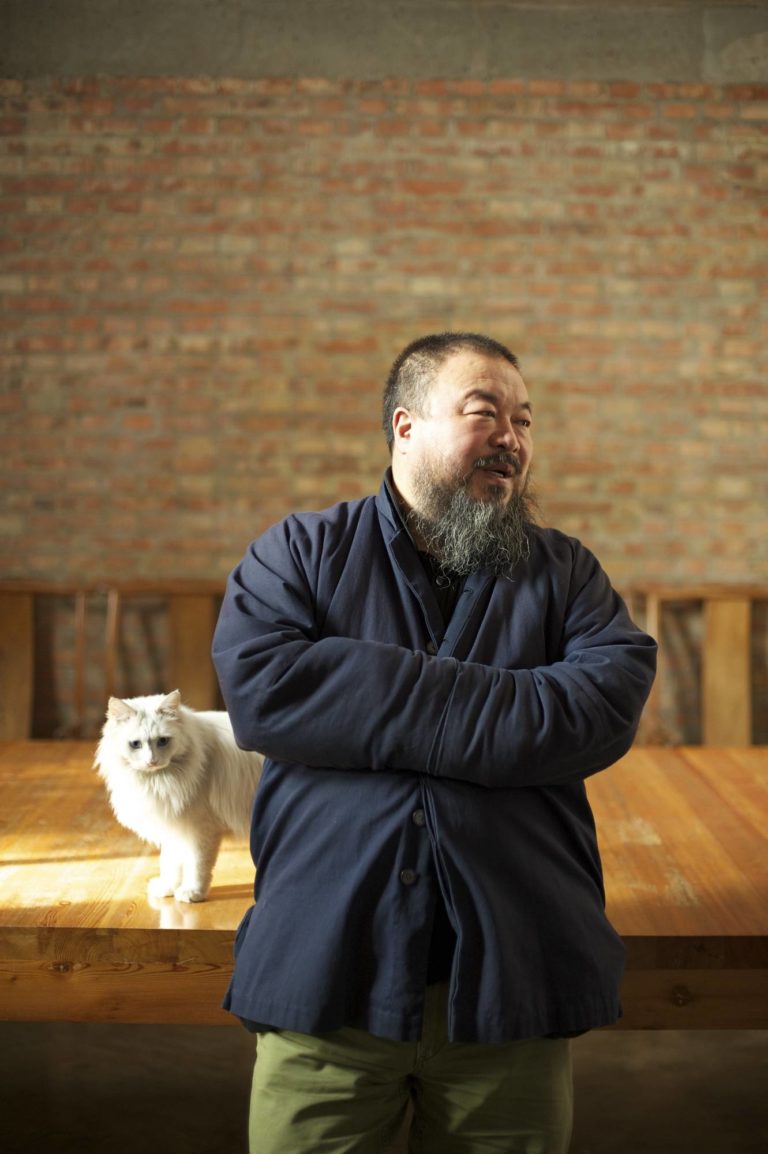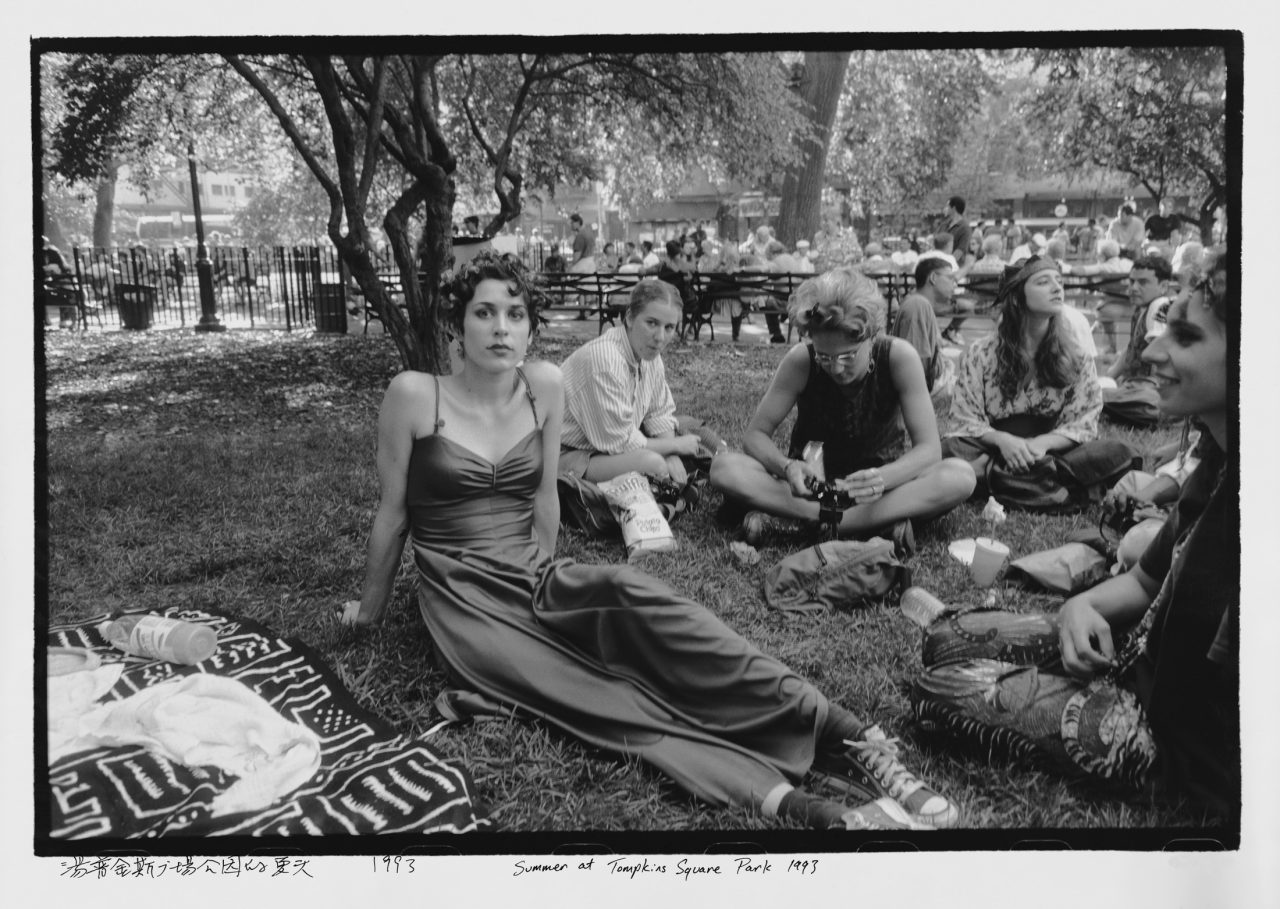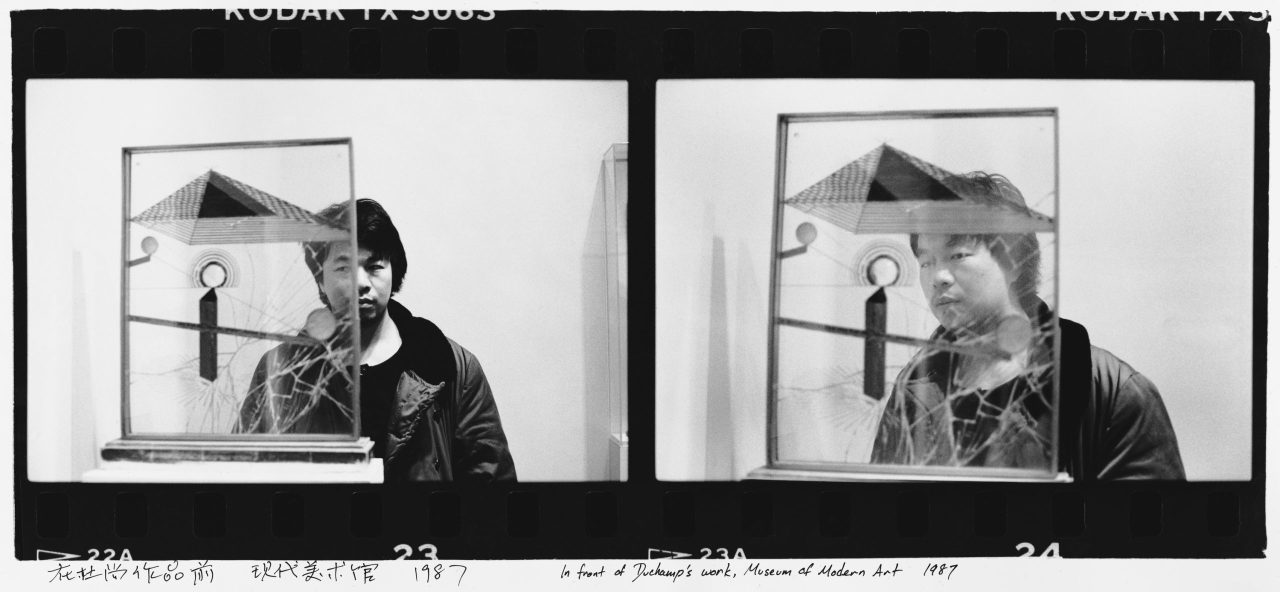12 Nov 2014, 7 pm
The Cinematheque, 1131 Howe Street, Vancouver
Film Series: Ai Weiwei: Never Sorry and Lecture with Carol Lu
-
Carol Lu
Presenter -
Ai Weiwei
ArtistAi Weiwei is China’s most famous international artist, and its most outspoken domestic critic. Against a backdrop of strict censorship and an unresponsive legal system, Ai expresses himself and organizes people through art and social media. In response, Chinese authorities have shut down his blog, beat him up, bulldozed his newly built studio, and held him in secret detention. Ai Weiwei: Never Sorry is the inside story of a dissident for the digital age who inspires global audiences and blurs the boundaries of art and politics. First-time director Alison Klayman gained unprecedented access to Ai while working as a journalist in China. Her detailed portrait provides a nuanced exploration of contemporary China and one of its most compelling public figures.
Read More

Ai Weiwei. Courtesy of IFC Films.
In conjunction with The Cinémathèque, we are pleased to present Alison Klayman’s award-winning documentary film Ai Weiwei: Never Sorry, which examines the complex intersection of artistic practice and social activism as seen through the life and art of the artist. Please join us immediately before the film for an introduction by Carol Lu, artistic director and chief curator of OCAT Shenzhen. A critic and curator based in Beijing, Lu is a Contributing Editor at Frieze Magazine. She was a jury member for the 2011 Venice Biennale’s Golden Lion Award, a co-artistic director for the 2012 Gwangju Biennial and writes frequently for international art journals and magazines including e-flux journal, The Exhibitionist, Yishu, Tate Etc. and Contemporary. Her curatorial work includes Unscrolled: Reframing Tradition in Chinese Art (with Diana Freundl), opening November 15th at the Vancouver Art Gallery.
Ai Weiwei is China’s most famous international artist, and its most outspoken domestic critic. Against a backdrop of strict censorship and an unresponsive legal system, Ai expresses himself and organizes people through art and social media. In response, Chinese authorities have shut down his blog, beat him up, bulldozed his newly built studio, and held him in secret detention. Ai Weiwei: Never Sorry is the inside story of a dissident for the digital age who inspires global audiences and blurs the boundaries of art and politics. First-time director Alison Klayman gained unprecedented access to Ai while working as a journalist in China. Her detailed portrait provides a nuanced exploration of contemporary China and one of its most compelling public figures.
CONCEIVED AND DEVELOPED BY SHELLY ROSENBLUM
-
Carol Lu
Presenter -
Ai Weiwei
ArtistAi Weiwei is China’s most famous international artist, and its most outspoken domestic critic. Against a backdrop of strict censorship and an unresponsive legal system, Ai expresses himself and organizes people through art and social media. In response, Chinese authorities have shut down his blog, beat him up, bulldozed his newly built studio, and held him in secret detention. Ai Weiwei: Never Sorry is the inside story of a dissident for the digital age who inspires global audiences and blurs the boundaries of art and politics. First-time director Alison Klayman gained unprecedented access to Ai while working as a journalist in China. Her detailed portrait provides a nuanced exploration of contemporary China and one of its most compelling public figures.
Read More
Related
-
Exhibition
5 September 2014 – 30 November 2014
Ai Weiwei: New York Photographs 1983-1993
Ai Weiwei: New York Photographs 1983–1993 consists of 227 black-and-white photographs taken by the artist during the decade that he resided in New York City, his first time away from China. The photographs were personally selected by the artist from over 10,000 negatives that are housed at Three Shadows Photography Art Center in Beijing and together represent a single work of art—no one image is more important than another. The exhibition is complemented by a 43-minute video interview with Ai Weiwei by Zheng Shengtian and videographer Don Li-Leger that discusses his growing up during the Cultural Revolution and his time in New York.
[more] -
Event
21 Nov 2014, 2-3 pm
Concert at the Belkin: Ai Weiwei

Once again, we are pleased to welcome the UBC Contemporary Players to the Belkin Art Gallery for a concert inspired by the exhibition Ai Weiwei: New York Photographs 1983-1993.
[more] -
Event
16 Oct and 13 Nov 2014, 1 pm
Conversations: Ai Weiwei

Join leading UBC scholars, artists, curators and critics in a series of midday conversations. We invite two prominent, disciplinarily distinct voices into the Gallery to discuss productive intersections of their own work and the current exhibition, followed by a discussion that includes the audience.
[more]